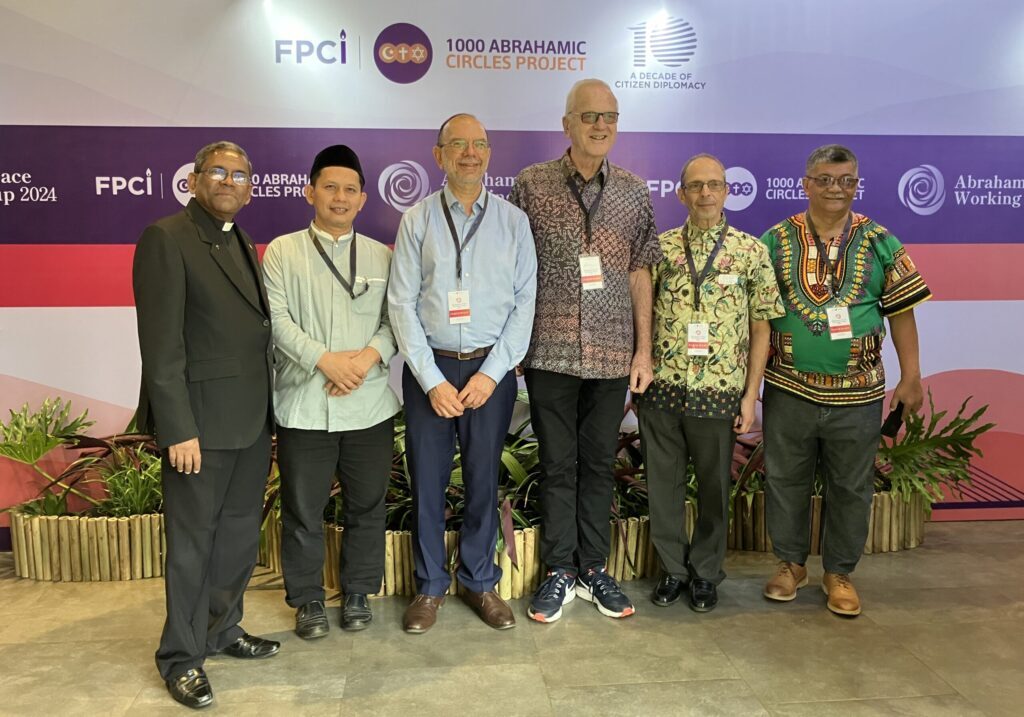Australia/Israel Review
Editorial: The Next Three Years
Sep 18, 2013 | Colin Rubenstein
Colin Rubenstein
The Coalition’s decisive victory on September 7 opens a new chapter in Australian politics. The system, for all its flaws and quirks, worked once again. The Australian people were given an opportunity to hear from the parties and the candidates, weigh the pros and cons, and choose their preferred path for the next parliamentary term.
We are pleased to extend congratulations to our new Prime Minister Tony Abbott and his team. Mr. Abbott, himself a long-standing and close friend of both the Australian Jewish community and Israel, will lead a cabinet including many individuals of whom the same can be said. Of course, the outgoing Labor Government could make a similar claim – which says much about Australian politics overall.
Regardless of their political views, few Australians will regret the end of the uncertainty and instability that characterised the three years following the inconclusive election of 2010.
Even so, the peculiar electoral map that is emerging in the Senate due to a preference system in need of reform (and providing opportunities for marginal and even extremist groups and individuals, as Daniel Meyerowitz-Katz and Anthony Orkin discuss) could certainly complicate Prime Minister Abbott’s ability to deliver certain campaign promises.
And there is of course a great deal to do. The new government will be expected primarily to confront an economy that looks to be in for a period of weak growth, deal with pressing budget concerns, but also tackle a whole series of domestic challenges related to education, health, and other bread and butter issues.
In the security sphere, terrorism looms as a continuing threat and preparations to deal with it require continued vigilance. Military doctrine and spending need to be re-examined.
In foreign policy, Australia’s role on the UN Security Council through to the end of 2014 provides a unique opportunity for the new Australian government to make a genuine difference internationally over the coming 15 months. Syria will be the immediate challenge, but the Iranian nuclear threat is likely to overshadow all other issues by the middle of next year. Meanwhile, the need for UN reform, and the restoration of its credibility, is more pressing than ever.
On other foreign policy issues, incoming Foreign Minister Julie Bishop’s view that the status of Israeli settlements is an issue to be negotiated between the Israelis and Palestinians themselves, and that it would be therefore unhelpful for Australia to prejudge their legality, is very welcome.
Such a re-adjustment of government policy on this issue can only strengthen the hand of Palestinian and Israeli negotiators trying to strike land swap deals as part of a comprehensive peace agreement.
Ms. Bishop’s position shows the kind of knowledgeable, judicious, sensitive thinking that had unfortunately been missing from a number of critical government policy stances and statements regarding Israel, including the ill-advised decision last year to overturn then-Prime Minister Julia Gillard’s preference for Australia to vote “no” and instead force an abstention on the Palestinian status upgrade vote in the United Nations General Assembly.
There is every reason to hope that Australia’s broader UN voting on issues related to the Middle East will reflect the well-informed and realistic perspective on peacemaking enunciated by Foreign Minister Bishop, as well as by Prime Minister Tony Abbott himself.
The bipartisan consensus around multiculturalism and communal harmony needs to be reinforced – and that means calls to scrap outright the country’s racial vilification laws, which risks giving free rein to those who would incite hatred against minority communities, must be rebuffed while, any proposed changes should receive thorough scrutiny and consideration.
Similarly, a key challenge for the Abbott Government is to implement the Coalition’s asylum seeker policy. The balancing act required will be a difficult one. The requirement for a non-discriminatory, generous and compassionate Australian policy in line with our national ideals needs to be reconciled with the necessity for an orderly and fair process, effectively addressing genuine border security concerns, and above all, the moral and logical case for reducing the incentives causing people to place their lives at severe risk in unseaworthy boats supplied by the illegal people-smuggling industry.
The efforts to address the issue of asylum seekers arriving by boats will also move Australian diplomacy with Indonesia to the fore – which is, in the main, a positive development. Our northern neighbour – the world’s most populous Muslim country – will naturally focus on its own concerns, but a great deal of potential exists for improved bilateral relations based on mutual interests.
As a major moderate Muslim country which rejects the path of political Islamism, Indonesia could well be a salutary example for others to follow, and it is in Australia’s interests to encourage potentially democratising countries – especially those with Muslim majorities – to look to the Indonesian example. In addition, the future prospect of gradual Indonesian normalisation with Israel appears to be a mutually beneficial and viable objective.
Meanwhile, following its electoral setback, Labor enters a phase of rebuilding, policy reappraisal and readies itself for yet another leadership contest, and presumably at least one term of constructive opposition.
As the last postal votes are tallied, settling the country’s closest races, it is worth remembering that – no matter what parties we voted for – as Australians, we are all truly winners. Our free society, with open and transparent democratic elections, is both a great achievement and a blessing for all of us.
While serving our nation well, it also challenges Australians to invest themselves in the political process through education and involvement. For its part, AIJAC’s information, analysis and advocacy roles are ones we cherish as part of our country’s ongoing political conversation.
Tags: Australasia, Indonesia






